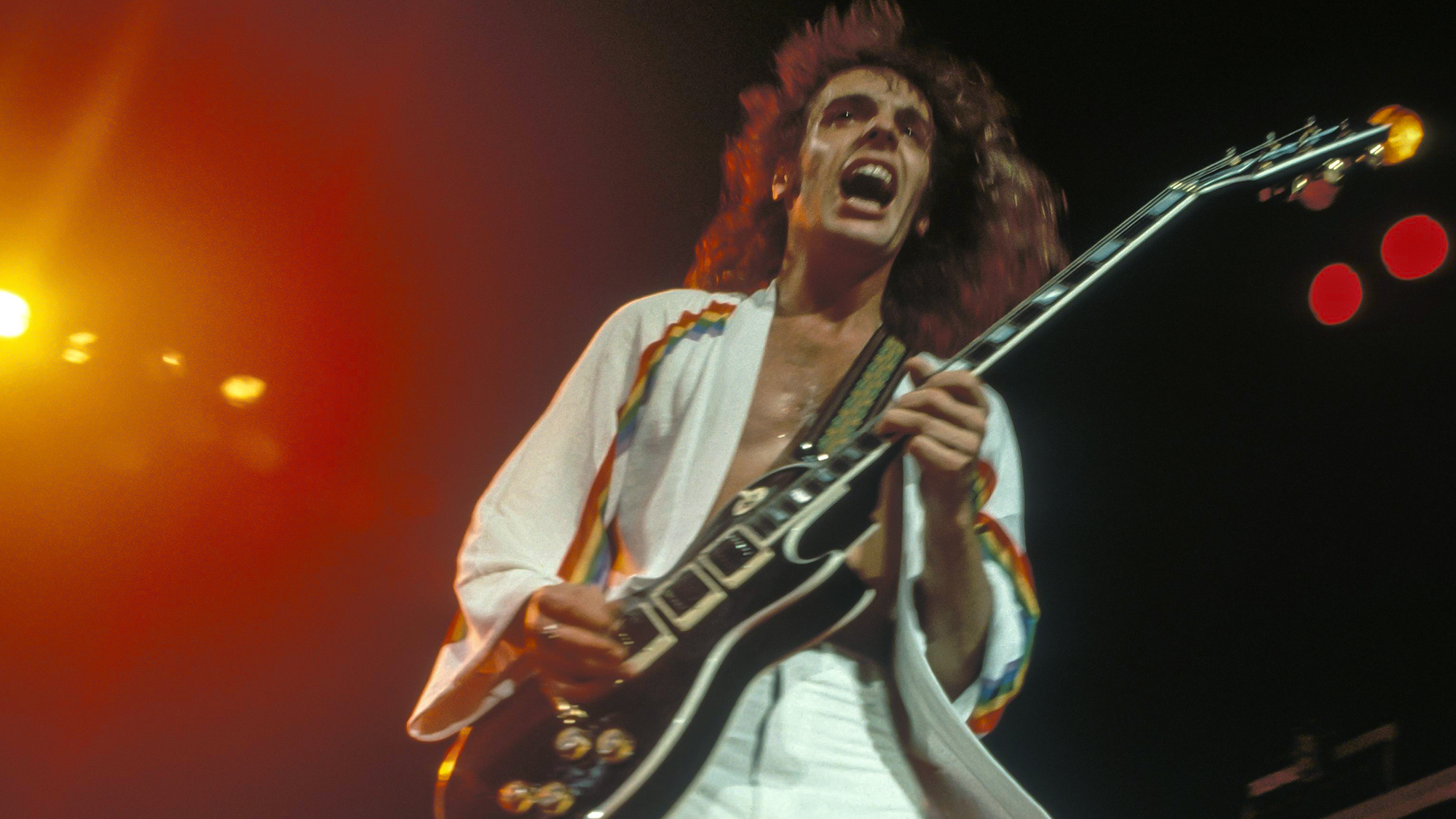Charvel Launches Jim Root Signature Pro-Mod San Dimas Style 1
The Slipknot guitarist's Pro-Mod San Dimas Style 1 HH FR E is a souped-up S-style with a clean aesthetic, and it might be built for metal but it should work a treat on all rock and shred styles.
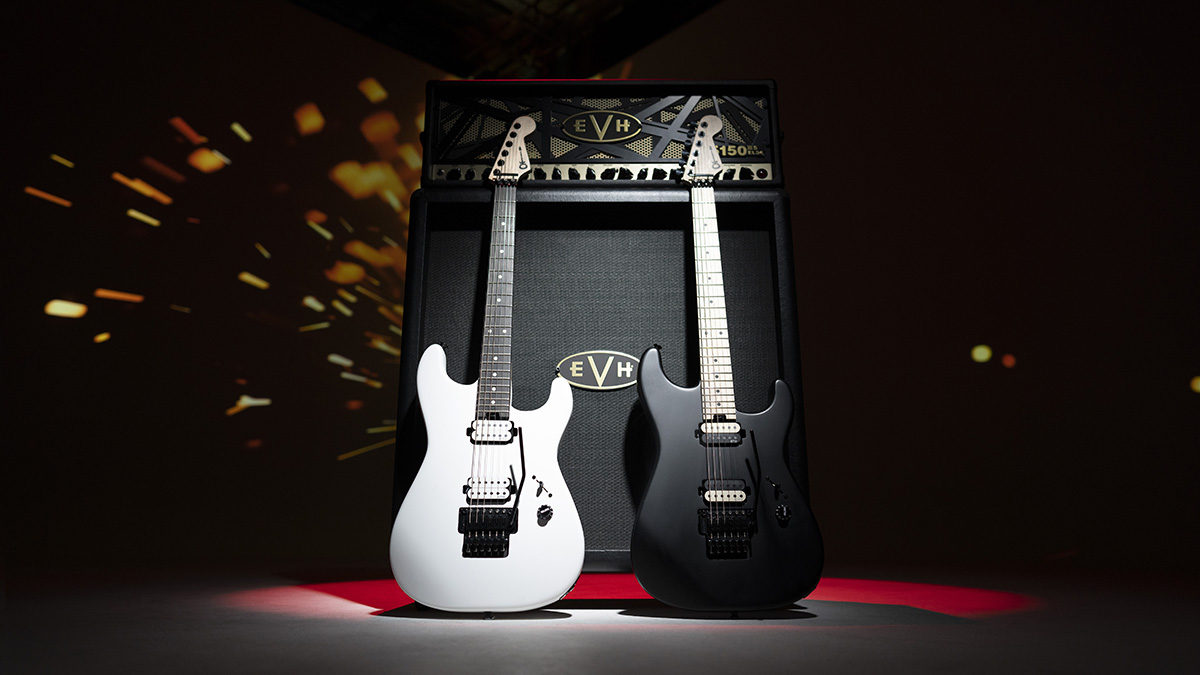
Charvel and Slipknot guitarist Jim Root have hooked up for a pair of signature electric guitars that offer up a hot-rodded take on the Stratocaster for a metal-friendly performance.
A longtime Fender endorsee, with a string of signature Jazzmasters and Strats to his name, Root has made a hop, skip and jump along to the Fender-owned Charvel brand for his Pro-Mod San Dimas Style 1.
It’s not particularly surprising to learn that Root’s signature San Dimas Style 1 has all mod-cons to get him through his day job – the signature EMG Daemonum humbuckers, the Floyd Rose Series 1500 double-locking vibrato, compound radius fingerboard – but what might raise an eyebrow among the casual observer is how restrained the design is.
Offered in Satin Black and Satin White, the latter with an ebony fingerboard, the former with maple, the Jim Root San Dimas Style 1 has a minimalist aesthetic, much like his earlier Fender models, with a control setup that is stripped down to just one Strat-style skirted volume knob and a three-way blade-style pickup selector switch.
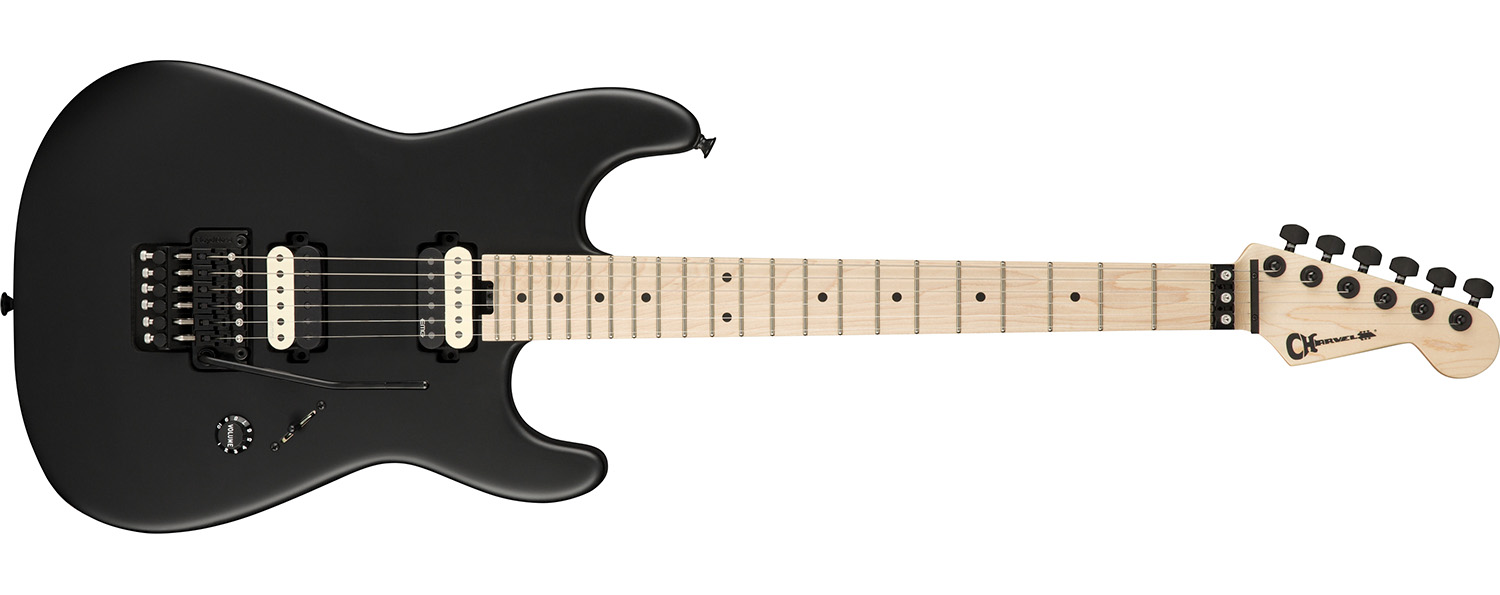
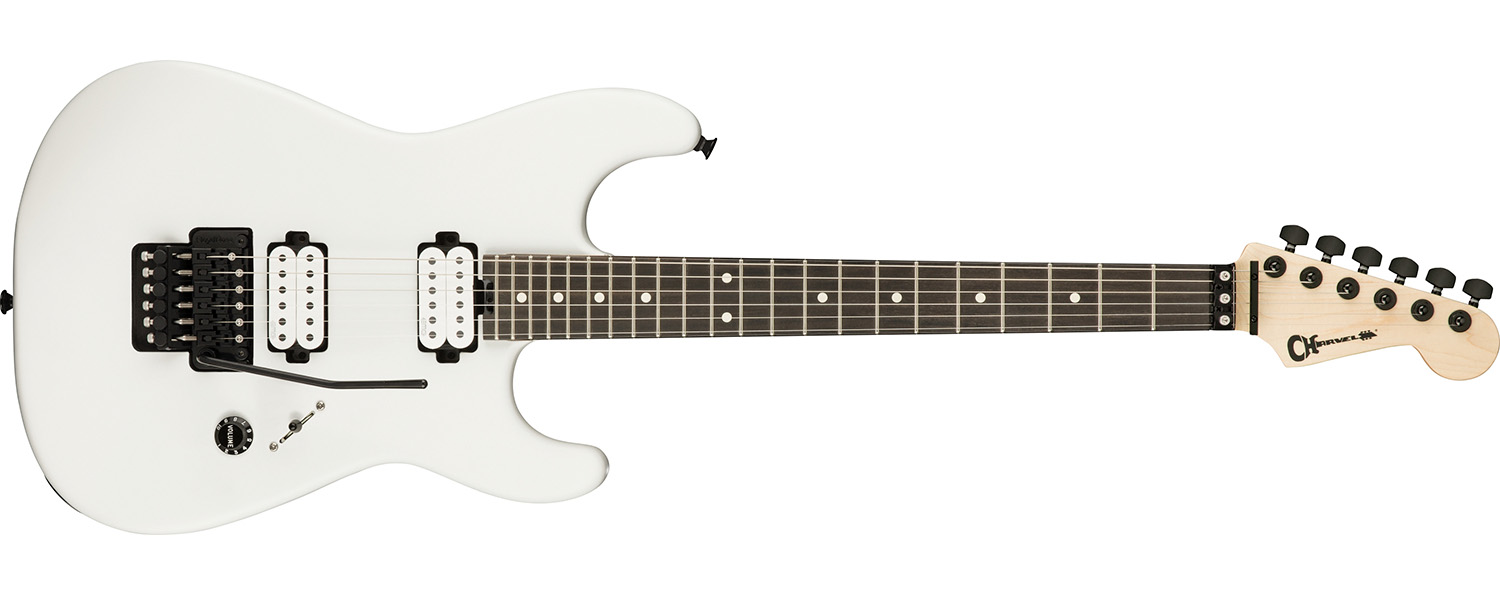
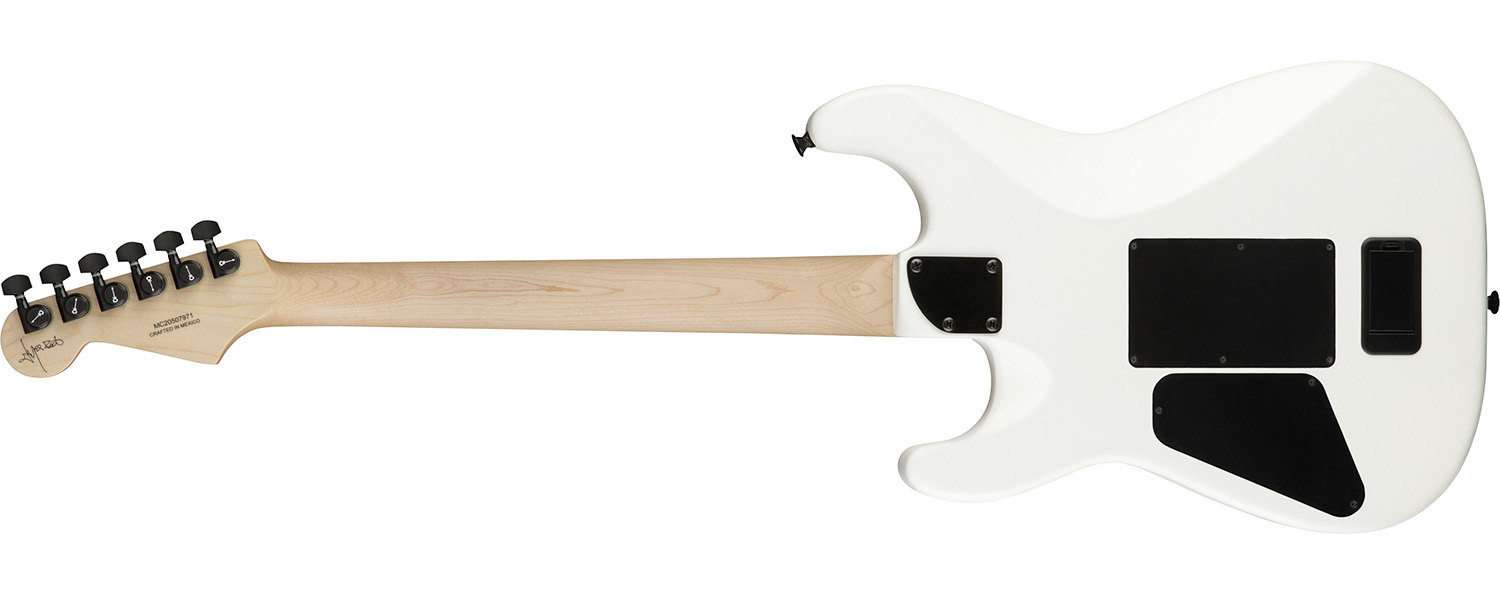
Indeed, casual observers, or players who typically would not count a Slipknot mosh pit as their natural environment, might find a lot to like in this austere design philosophy.
Root likes the classics. He doesn’t like to mess around with them too much. His signature Strat, which features the high-output one-two punch of an active EMG-80/61 paring, was probably more radical than this – at least here the dot markers return to the fingerboard. It’s more Strat than the Strat was.
The most radical item here is arguably the mahogany body. Root likes an alder-bodied Strat just fine but wanted a heavier, denser wood because it pairs better with Slipknot’s downtuned metal sound.
All the latest guitar news, interviews, lessons, reviews, deals and more, direct to your inbox!
The signature EMG Daemonum’s are not our Granddaddy’s PAFs but they do offer a more dynamic and touch-sensitive alternative to the slightly compressed quality of most active sets. Now, these open-coil pickups are active, so you will need a 9V battery.
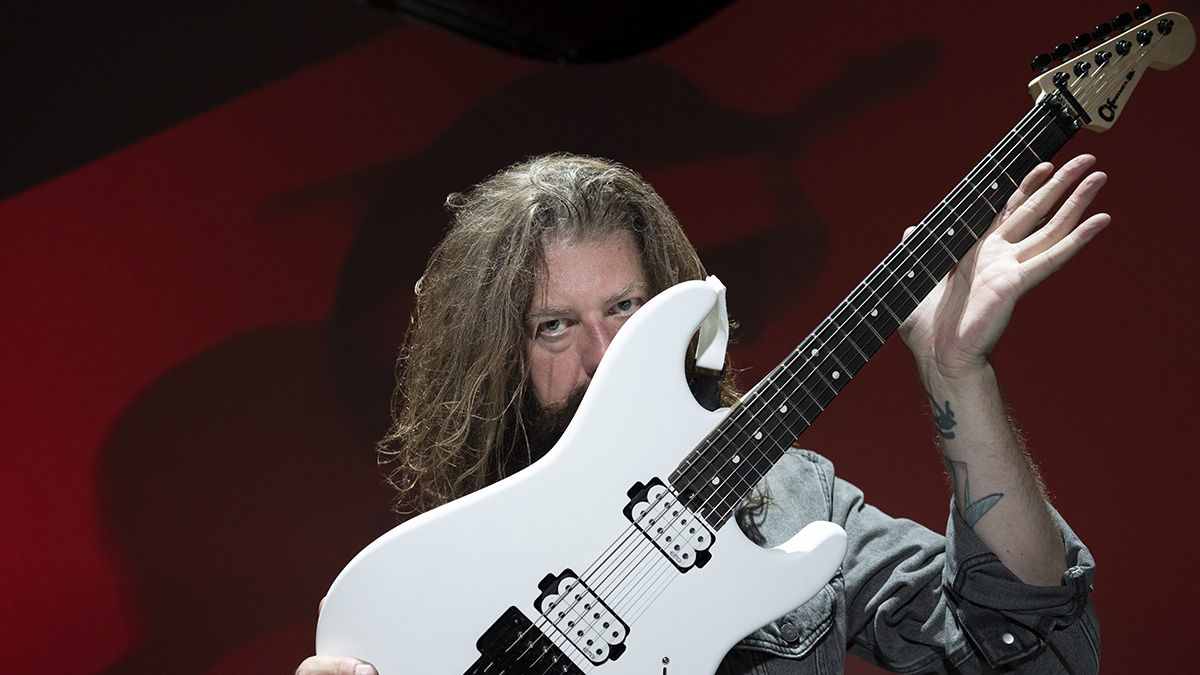
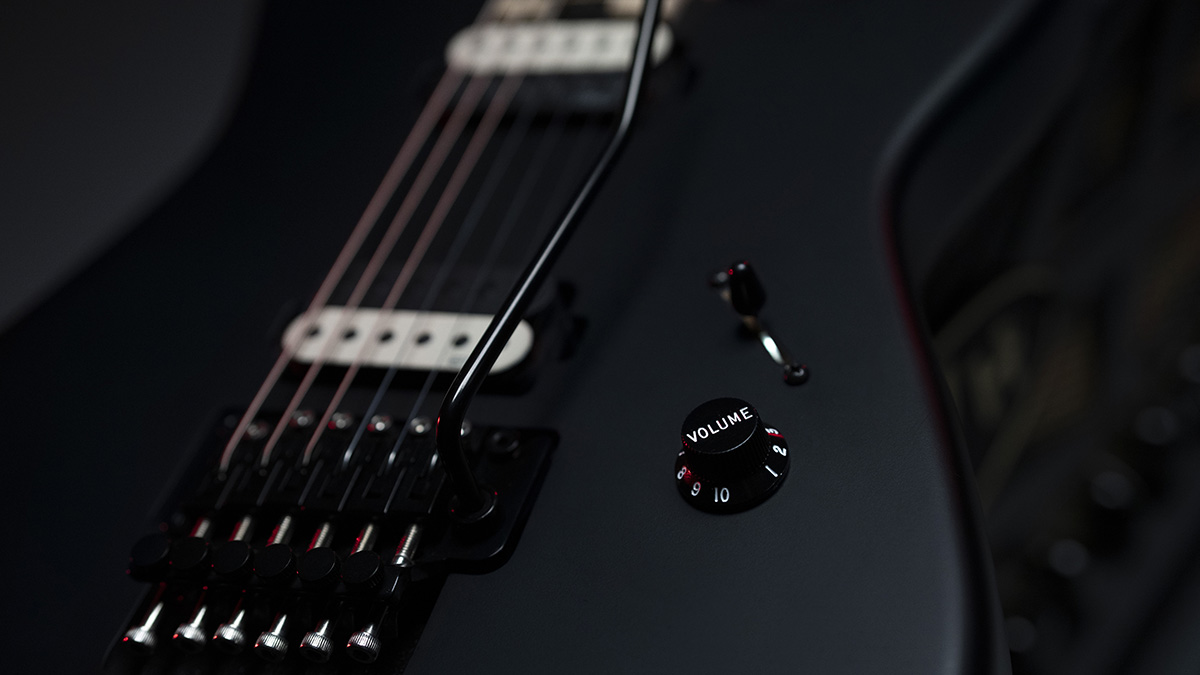
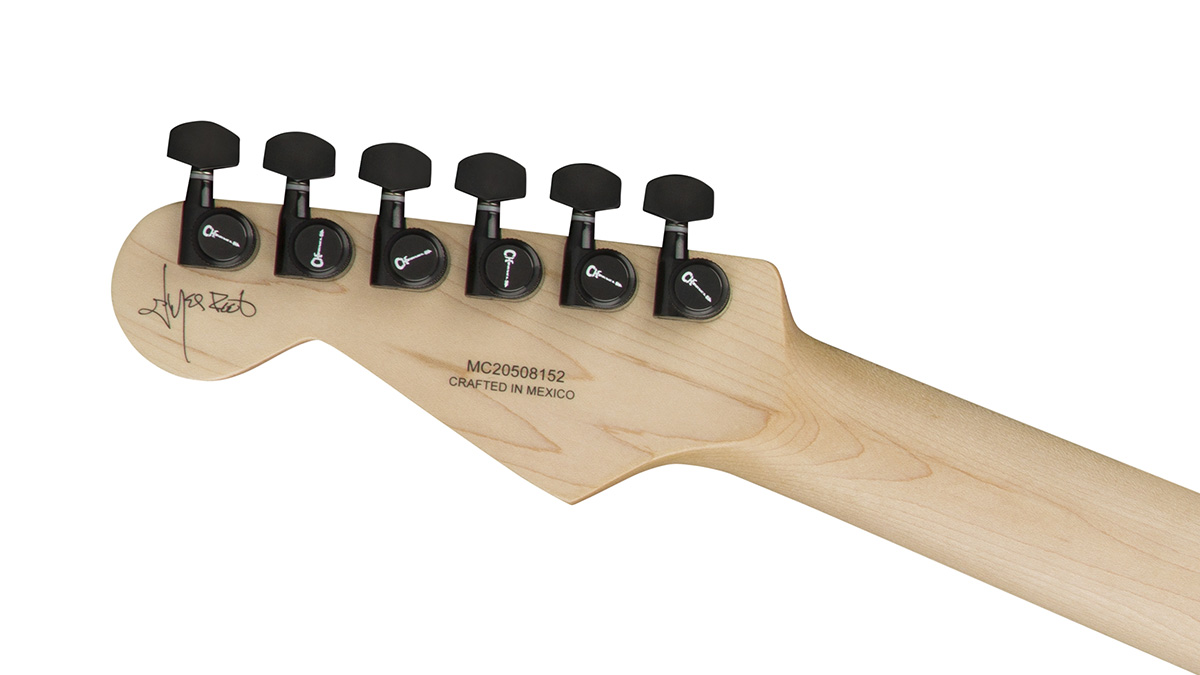
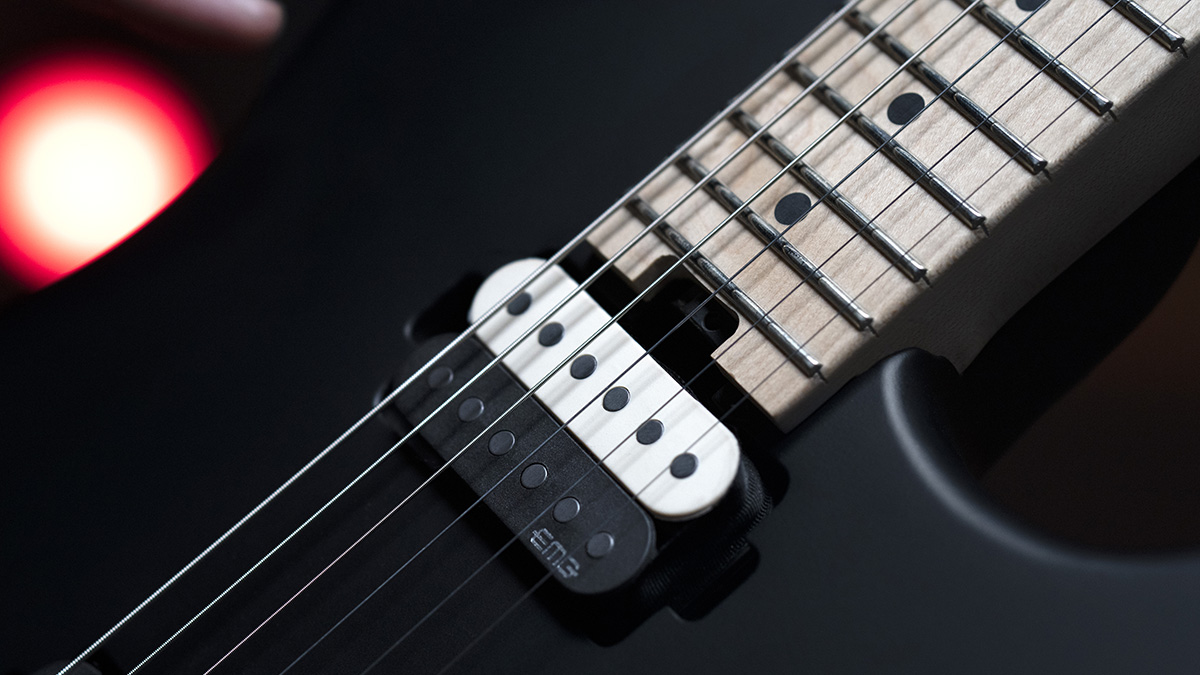
For players with aspirations of ascending Mount Shred, this is a very attractive looking proposition, with the Floyd Rose 1500 Series double-locking vibrato a super-stable platform for whammy bar manipulation, and Charvel-branded locking tuners to make sure things stay that way.
High-gain is of course on the menu, and with a sculpted heel, contoured lower cutaway, and the 12” to 16” compound radius fingerboards, with rolled edges for a premium feel, Luminlay glow-in-the-dark side markers for navigation, you’ve got everything you need for a set’s worth of fretboard pyro.
Once more, these Mexican made Charvels retail at a relatively friendly price for a pro-quality shred machine, with both models (the only difference is the finish) available now for $1,499. For more details, head over to Charvel.
